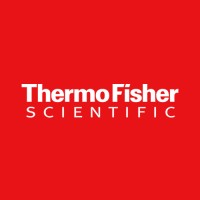MCP-1 / FITC / 2H5
Product Details
| Description | MCP-1 Monoclonal Antibody (2H5), FITC | |
|---|---|---|
| Conjugate | FITC | |
| Clone | 2H5 | |
| Target Species | Human, Mouse, Rat | |
| Applications | FC | |
| Supplier | Thermo Fisher Scientific | |
| Catalog # | Sign in to view product details, citations, and spectra | |
| Size | ||
| Price | ||
| Antigen | ||
| Host | ||
| Isotype |
About MCP-1
This gene is one of several cytokine genes clustered on the q-arm of chromosome 17. Chemokines are a superfamily of secreted proteins involved in immunoregulatory and inflammatory processes. The superfamily is divided into four subfamilies based on the arrangement of N-terminal cysteine residues of the mature peptide. This chemokine is a member of the CC subfamily which is characterized by two adjacent cysteine residues. This cytokine displays chemotactic activity for monocytes and basophils but not for neutrophils or eosinophils. It has been implicated in the pathogenesis of diseases characterized by monocytic infiltrates, like psoriasis, rheumatoid arthritis and atherosclerosis. It binds to chemokine receptors CCR2 and CCR4. Elevated expression of the encoded protein is associated with severe acute respiratory syndrome coronavirus 2 (SARS‐CoV‐2) infection. [provided by RefSeq, Aug 2020]
This gene is one of several cytokine genes clustered on the q-arm of chromosome 17. Chemokines are a superfamily of secreted proteins involved in immunoregulatory and inflammatory processes. The superfamily is divided into four subfamilies based on the arrangement of N-terminal cysteine residues of the mature peptide. This chemokine is a member of the CC subfamily which is characterized by two adjacent cysteine residues. This cytokine displays chemotactic activity for monocytes and basophils but not for neutrophils or eosinophils. It has been implicated in the pathogenesis of diseases characterized by monocytic infiltrates, like psoriasis, rheumatoid arthritis and atherosclerosis. It binds to chemokine receptors CCR2 and CCR4. Elevated expression of the encoded protein is associated with severe acute respiratory syndrome coronavirus 2 (SARS‐CoV‐2) infection. [provided by RefSeq, Aug 2020]
About FITC
Fluorescein isothiocyanate (FITC) has an excitation peak at 495 nm and an emission peak at 519 nm. The name FITC is a misnomer in that the isothiocyanate is a reactive form of this dye. Once FITC is conjugated to an antibody, it is simply Fluorescein conjugated. FITC is one of the most widely used dyes for fluorescent applications, therefore most instruments come standard with a 488 nm laser and FITC filter set up. FITC is commonly conjugated to secondary antibodies and used in applications such as flow cytometry, immunocytochemistry, and immunohistochemistry. FITC is relatively dim, sensitive to photobleaching and it is susceptible to changes is pH. There are better performing alternatives to FITC, like Vio®Bright 515, Alexa Fluor™ 488, iFluor® 488, CF®488A and DY-488. FITC is a long-time generic dye with no sole manufacturer or trademark.
Fluorescein isothiocyanate (FITC) has an excitation peak at 495 nm and an emission peak at 519 nm. The name FITC is a misnomer in that the isothiocyanate is a reactive form of this dye. Once FITC is conjugated to an antibody, it is simply Fluorescein conjugated. FITC is one of the most widely used dyes for fluorescent applications, therefore most instruments come standard with a 488 nm laser and FITC filter set up. FITC is commonly conjugated to secondary antibodies and used in applications such as flow cytometry, immunocytochemistry, and immunohistochemistry. FITC is relatively dim, sensitive to photobleaching and it is susceptible to changes is pH. There are better performing alternatives to FITC, like Vio®Bright 515, Alexa Fluor™ 488, iFluor® 488, CF®488A and DY-488. FITC is a long-time generic dye with no sole manufacturer or trademark.
Experiment Design Tools
Panel Builders
Looking to design a Microscopy or Flow Cytometry experiment?
Validation References
Reviews & Ratings
| Reviews |
|---|
Looking for more options?
736 MCP-1 antibodies from over 28 suppliers available with over 41 conjugates.





